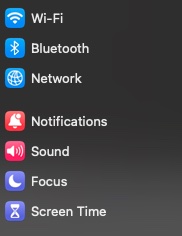 This word perplexed me when I first encountered it, during some discussion of software. I recall the statement “what are the affordances of this particular application?” I disliked the word instantly, yet now find myself using it, as I draft an article about the affordances of peer tutoring by humans, as compared to the help provided by generative AI.
This word perplexed me when I first encountered it, during some discussion of software. I recall the statement “what are the affordances of this particular application?” I disliked the word instantly, yet now find myself using it, as I draft an article about the affordances of peer tutoring by humans, as compared to the help provided by generative AI.
For a word I find ugly, affordance sure came in handy. To get at the root of our word, even the OED will not quite do. Wikipedia, however, with its crowd-sourced wisdom and peer-editing offers just the affordance we need. According to Psychologist James L. Gibson, who coined the term, affordance involves many factors beyond “usefulness.” His definitions cited in the Wikipedia entry involve how a particular environment benefits an animal. When applied to software, which most animals do not use, we see how graphical-user interfaces offer affordances that older command-line interfaces do not.
UNIX users can come lay a beating on me any time they wish to try.
We can dive into the signified/signifier rabbit hole here, but consider how the smart-phone’s icon of an envelope connotes e-mail, whereas a phone headset connotes a voice call. The affordances of icon-based systems seem rather obvious; we recognize something immediately, saving us time as compared to looking up that command in a book. Older readers will recall post-it notes all around their desktop monitors with arcane tricks for DOS or other command-line programs.
Coda: industrial design is also all about affordance. Look at everyday items in your home or office and note their affordances. I can heat water in a ceramic cup or my teapot. I suppose I could drink from either, yet each offers different affordances.
If you have useful words or metaphors, by e-mailing me (jessid -at- richmond -dot- edu) or leaving a comment below.
See all of our Metaphors of the Month here and Words of the Week here.
Screen-shot by the author